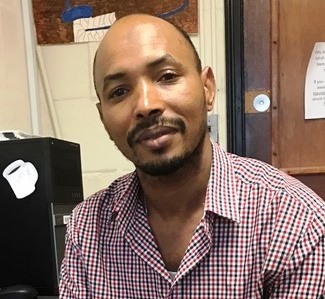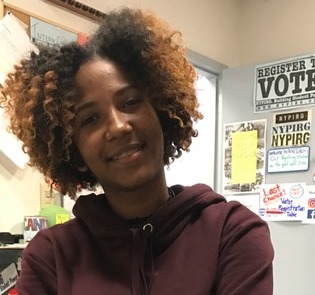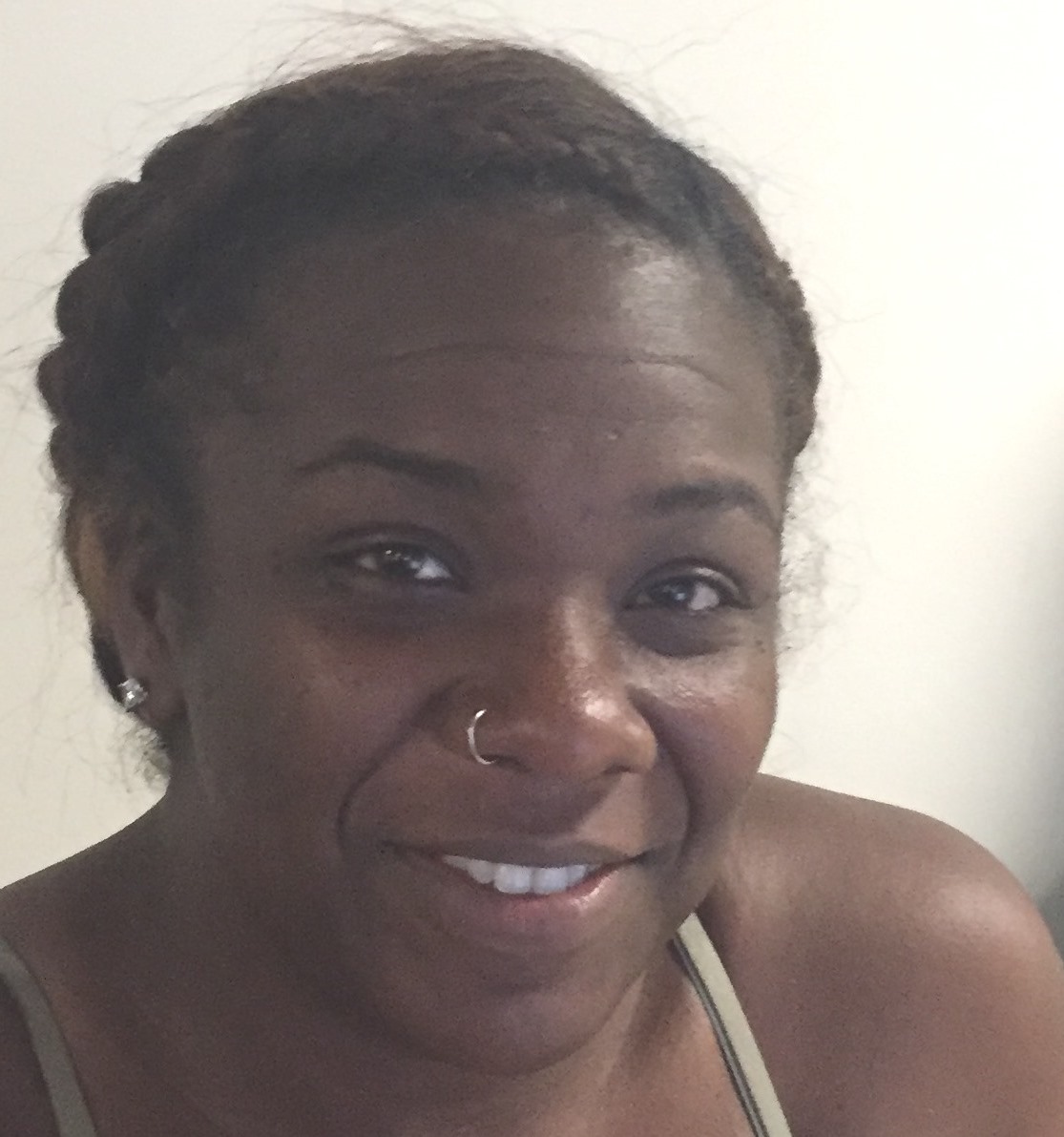


My name is Stephanie Almodovar and I am a freshman at CUNY City College. I am currently looking to go into Civil Engineering. Right now, I work as a group leader at a local YMCA and this job allows me to save a little for school. Unfortunately, I do not receive Pell Grants and I do not qualify for the Excelsior Scholarship because my mother’s income is just above the cut off level. Often times I struggle with paying tuition and buying the necessary textbooks for school.
I do not qualify for work-study so most weeks I have to choose between saving money towards school or buying lunch. I usually only eat lunch 2-3 times a week but sometimes that’s too much because buying snacks will deplete my savings and I would not be able to eat for the rest of that week. Thankfully, with the help of outside scholarships, I am now able to pay tuition without worry. However, at any time, that could change. I try my hardest to not let these troubles overcome my college experience but sometimes it all becomes too much. In all honesty, I dream of tuition-free CUNY so that one day I will no longer have to worry about paying for school and just enjoy learning.


I am a super senior at Hunter College majoring in philosophy. I personally have had to stay an extra year at Hunter College because I did not get one of the required courses I needed to graduate on time and now I must wait an extra year to graduate. As a result, I have run out of my TAP award because it only covers four years. I still get the Pell Grant, but now I must buy my textbooks and other living expenses out of pocket. Without enough classes available, without enough time with advisers to properly plan out our schedules, students suffer. I have had classmates offer me money to hold spots in coveted bio courses when I have earlier course registration than them, because there are not enough bio course seats available to accommodate students at **the** CUNY school for students majoring in the pre-health sciences. This is not acceptable. Students deserve better, money is owed to education. That is why Governor Cuomo must pass the MOE.




 I am a first semester freshman at Bronx Community College from The Gambia looking to study International Relations. I have four children, and my wife and I are both in school and have to work to support our family. I drive a cab as a way to earn money. I wouldn’t be able to go to school without the Tuition Assistance Program (TAP), the Pell Grant and the ASAP program.
I am a first semester freshman at Bronx Community College from The Gambia looking to study International Relations. I have four children, and my wife and I are both in school and have to work to support our family. I drive a cab as a way to earn money. I wouldn’t be able to go to school without the Tuition Assistance Program (TAP), the Pell Grant and the ASAP program.
I am planning to go to a four year college and am worried because I won’t have ASAP for my bachelors. I will continue to get Pell and TAP. But if NY isn’t giving secure funding for more course offerings, it is unclear if I’ll have the courses available to ensure that I graduate on time. Since I have a family to support, there is no way I will be able to afford to pay out of pocket if I run out of financial aid. This is why I we must have a Maintenance of Effort from our state government.


I am a freshman studying liberal arts. I receive TAP and the Pell Grant and I am part of ASAP. I use Pell to help pay for the bills since I live with my mom. I would like to go to Brooklyn Institute to be a sonographer. I think I am going to have to take out loans for my bachelors. I used to work, but I am taking 17 credits this semester. I used to work on weekends when I took 12 credits which would be the maximum amount of credits I’d want to take while having a job. If I didn’t receive financial aid I’d have to take out a loan.


I am a sophomore studying criminal justice that wants to go to John Jay. I receive the Tuition Assistance Program (TAP)award and the Pell Grant and I am part of the ASAP program. Since ASAP covers textbooks and metrocard, I can use Pell for food and other bills. I also have a paid internship with a cadet which helps me pay for some of the textbooks that don’t get covered through ASAP. I am the first person in my family to go to college, my family is from Ecuador. If I didn’t get financial aid I would have gone to the army because they pay for college. I was part of CUNY Start originally and it helped me get through remedial classes by offering textbooks and advisers for much cheaper. I would have liked to be in the ACE program at John Jay but it doesn’t cover transfer students. I will probably rent textbooks when I transfer. I’ve been looking for internships for credit so that I graduate on time at John Jay and don’t run out of my financial aid.



I am a freshman psychology major. I would like to eventually work at a school and work with teenagers or do social work. I receive the Tuition Assistance Program (TAP) and the Pell Grant and I am looking for a job to pay for the bus, food and clothes. I didn’t qualify for ASAP because they said I had too many remedial courses. But I had taken those classes in the summer already. When I went to try again to appeal, the spots in ASAP were already filled up. If I was able to get into ASAP I would get my metrocard covered which would be a huge help. I am the first person in my family to go to college. My family and I are from the Dominican Republic. If I didn’t get financial aid I’d have to take out loans. I am trying to work to save money in case there is a semester that I don’t get enough financial aid.


I am a full time marketing student living in Ozone Park. I am currently receiving SNAP and was able to secure an on-campus job through federal Human Resources. I would prefer to do the regular on-campus Work Study program to help pay for school but the waiting list is too long. The Single Stop center on campus was helpful in finding this employment connection. I was otherwise not aware that the government could help me.
I am currently supporting myself and two children and benefit tremendously from government assistance. My greatest expenses besides school textbooks and utility bills are my children’s clothes. They grow every few months.
I would like my representatives to keep these programs like workstudy, SNAP and HR work programs, which help keep me on my feet. Cutting any of it will only cut the workforce and lead to unemployment. That doesn’t make sense.


I am a 4th year computer science major at Queens College. I am 21 years old and work full time at JFK airport. I am also in school full time and commute from Canarsie, Brooklyn. Even though it is taking me a year longer to graduate and I have sacrificed extra time just commuting, Queens has a strong computer program.
Thankfully, I live with my parents but the space is tight and the prospects of me ever moving out are dim. Work study would help me tremendously, as would SNAP. My 3 siblings get just what they need but the future is always scary. The pressure is on for me to move out but it just isn’t possible.
It is a hard choice to either give up my full time job or work part time on campus and help pay for school. Most of my money goes to transportation and food. School supplies are actually a large percentage since I pay for computer programs and equipment. I’m just trying to save as much money as possible and one day work for a tech company.


I had to give up being in school full time because I got offered a job through the Department of Education as a paraprofessional. I am beyond grateful for this job, but financially I am so far behind. Student debt is my major expense next to food. I do receive SNAP benefits but it is barely enough. I am a big guy. They should give me a little more based on my dietary needs, but obviously I will take anything. For over a year, I was applying for Work Study so I could finish my degree in dietetics, get school over with and begin to work full time. Luck just wasn’t on my side with finding an on campus position and I did not have time to wait around. For now, I am living with family and paying rent, hoping to save enough to live more comfortably. Until then, I will use my SNAP and keep studying.



I am currently benefiting tremendously from my Work Study position in the Queens College office of Veteran Affairs. I receive a tax free stipend as long as I am enrolled as a full time student. I chose recently to be in school full time rather than work as a porter.
Either way, financially I would be struggling. I want to improve and enjoy my life but more importantly, provide the same opportunity for my two children. Gabriel is 13 and Liam is 9. If I did not have Work Study, expenses would be overwhelming and I would be on the street. My current major expenses are feeding my kids and paying rent. At the end of the month, I just make ends meet I am grateful for this on campus job.




 I am a first semester freshman at Bronx Community College from The Gambia looking to study International Relations. I have four children, and my wife and I are both in school and have to work to support our family. I drive a cab as a way to earn money. I wouldn’t be able to go to school without the Tuition Assistance Program (TAP), the Pell Grant and the ASAP program.
I am a first semester freshman at Bronx Community College from The Gambia looking to study International Relations. I have four children, and my wife and I are both in school and have to work to support our family. I drive a cab as a way to earn money. I wouldn’t be able to go to school without the Tuition Assistance Program (TAP), the Pell Grant and the ASAP program.

